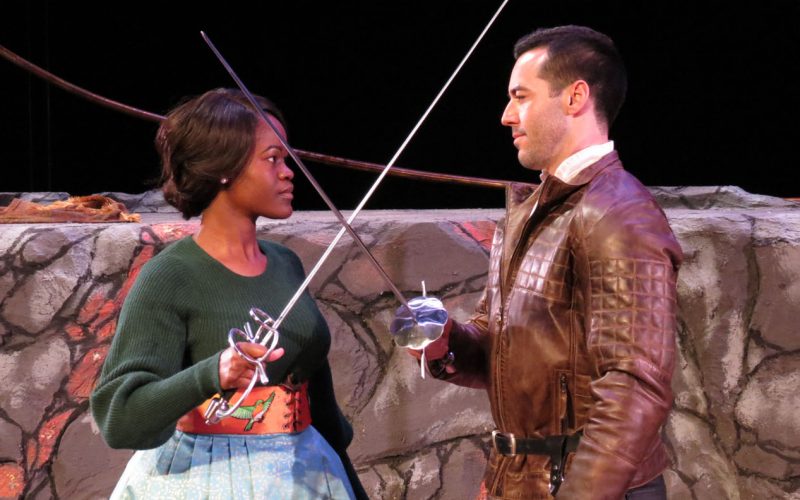Classic from 17th century asks relevant 2018 questions
University of Arkansas Theatre’s Jeremiah Albers is directing the department’s production of the 17th century Spanish classic “Life Is a Dream,” written by Pedro Calderón de la Barca. It’s something he never would have predicted upon his first reading of the play as an undergraduate: He hated it, he says, finding it “too talky” and “heavy-handed.” It wasn’t until he was cast in a production of the Spanish Golden Age drama several years later that he fell in love with the work.
“In live performance, its poetry is electrifying, and the play itself functions almost like a roller coaster in the way that it takes you on this strange illogical journey that somehow teaches you a valuable lesson about personal responsibility and how to choose the best path for your life,” says Albers, a third-year MFA directing student. His past directing credits include “God of Carnage,” “Angels in America, Part Two: Perestroika” and “Canaveral.”
The play tells the story of Segismundo, prince of Poland, who is imprisoned in infancy by his father, Basilio, as a result of a prophecy predicting that the prince will bring disaster down upon the country. As the plot unfolds, themes such as fate versus free will and reality versus a dream world are explored.
Albers says the first challenge in directing the play was finding an appropriate translation.
“Despite having read somewhere in the neighborhood of 12 or 13 [adaptations], [I] came up empty,” he says. “So I made the bold — and probably foolhardy — decision to adapt the play myself. It seemed logical, as it allowed me to clear out some of the dust of old age and try to write a text that stayed true to the imagery and poetry of the original play, while also not sounding like a foreign language to a contemporary audience.”
Albers says the heightened language and styling of the centuries-old classic has been a challenge for the cast.
“In rehearsal, it has been a fun puzzle to figure out … how to allow for the style of the piece. Soliloquies — asides in which characters speak their inner monologues to the audience — can live in a world that also has whole, psychologically and emotionally realized people inside of it. I think our efforts are paying off. Just because a play has classical roots doesn’t mean it can’t have immediacy.”
In fact, says Albers, the play was written in the 17th century, but it still retains a great deal of relevance in today’s world.
“At the core of ‘Life Is a Dream’ is a question about fate: whether a person’s direction is predetermined or if he has free will,” says Albers. “I think this question has been an important and inevitable question to people of faith since the beginning of people having faith. The play is an allegory for the different paths that people can choose and how even the best intentioned people sometimes are flawed. But, perhaps most relevant to today, is the question of what is the quality that makes a great leader? I think this is a conversation that we seem to be having now as a country, and I think that ‘Life Is a Dream’ has a lot of great ideas on the subject.”
__
FAQ
‘Life is a Dream’
WHEN — 7:30 p.m. Feb. 16-17, 21-24; 2 p.m. Feb. 18 and 25
WHERE — University Theatre, 340 N. Garland Ave. in Fayetteville
COST — $5-$20
INFO — 575-4752
LARA JO HIGHTOWER
lhightower@nwadg.com



